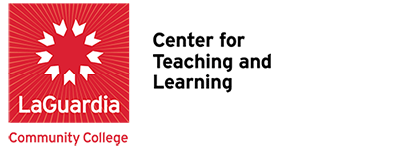 May 10, 2020
May 10, 2020
Patricia Sokolski, Humanities
I am grateful for what I have. Our students’ struggles are amplified, and I am sheltered. In addition to sickness and death, students who live with families report anger, frustration, and less patience as cramped quarters and money worries create more stress and anxiety.
How can we help them? The physical presence in the classroom made it easier to read nonverbal communication. We could see our students’ body language; they could talk to us or rush out at the end of class, but at some point during the session we would have made eye contact. That exchange is lost, and so is the wonderful feeling of forgetting everything else when entering the classroom space.
Being present is different on Zoom or Blackboard Collaborate; I am in my kitchen and I know it. I try, though; I put on a different sweater, earrings, eye liner, and I brush my teeth before seeing myself on video. Like most of my students, I tried to do only audio until a comment appeared in the chat box: “professor, we can’t see you.” So now I am on their computer screens with the white paint of my kitchen wall as a background.
Without immediate nonverbal feedback, appreciating student reactions to an activity is less intuitive and makes improvising too difficult for me. I keep asking if they are okay, and I get the “thumb up” in the chat box or I hear a few say “yes.” That students come back even if attendance is not mandatory is a sign that these synchronous sessions may serve a purpose.
When we discussed the impact of COVID-19 on our use of time, students mentioned the lack of structure, the ability to postpone to the next day, and the feeling that each day is the same as the next. I feel that too. If nothing else, these bi-weekly meetings create a routine and organize our days. I have three small classes of forty-five students in total. Of this number, I am sorry to say that by this point I have lost seventeen, despite emails, texts, and contact with advisors. Students thank me for my efforts, commit to try, only to disappear again for reasons directly or indirectly connected to COVID-19 including the transition to remote learning.
Of course, I think about my responsibility in the transition. I’ve worried and questioned my abilities, especially after hearing colleagues report success in their own courses. What am I doing wrong? But finally, during last week’s Senate Committee of Faculty meeting, a faculty member talked about students not doing well and another mentioned an unusual dip in attendance after Spring break. I felt less alone, but not less responsible.
My colleagues’ comments have changed my outlook: for next semester, rather than doom and gloom, I see new possibilities. From I have to learn more about remote teaching, I now want to learn more. I did not take advantage of all the webinars; I didn’t know what I needed. Now I have some ideas. Reorganizing my blackboard site will be a priority. What is comfortable for me may not work that well for students, so I am going to try three or four learning modules instead of my weekly folders to limit the number of places to look for information and to focus on learning rather than time. This may be obvious to other instructors, but that’s where I am at now.
At the same time, lucky me! I am surrounded by a caring family and fantastic friends. Together we are building memories of this time, checking in on each other, and figuring out what this experience means for our professional and personal lives. I don’t miss getting ready in the morning, packing lunch, and taking the subway. I do enjoy the flexibility that working from home affords, and with space all to myself, I can’t complain. Like my students, I miss seeing life in the atrium, coffee with colleagues, and impromptu conversations in the hallways. Being goofy and laughing is much less fun without company.
Confined at home, I am spending more time in my head thinking about life, and the passing of my uncle and Louis Lucca, the coordinator of my program. Although their deaths were not COVID- related, neither my uncle nor Louis thought life would end this soon. My uncle had more concerts to play, and Louis, looked forward to enjoying retirement in the south of Spain. What am I to learn?
While I don’t feel like a mouse on an exercise wheel, I always feel that I should be doing something for work when I am not at work. Does this mean we will go back to campus, pick up where we left off, and slowly forget what happened? I want to be optimistic and hope we will seize the opportunity to shift priorities to create a more welcoming environment for everybody to thrive. In the meantime, aware of my position and thankful, I will help my students finish the semester, care for my friends and family, work on a paper for a conference next year, and catch up on my reading of Moby Dick for the “Moby Dick Collective for Those Who Have Never Read Moby Dick.”
Read Michele Piso Manoukian’s introduction to this series, which includes links to the other faculty reflections on teaching during Covid19 in the Spring 2020 semester.


